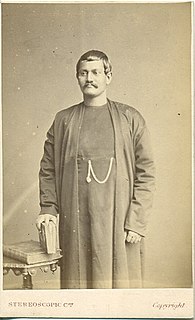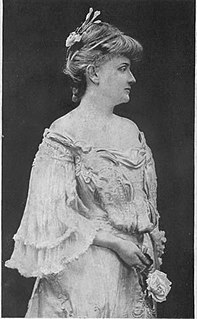A Quote by Blaise Pascal
People are generally better persuaded by the reasons which they have themselves discovered than by those which have come in to the mind of others.
Related Quotes
The greatest human virtue bears no proportion to human vanity. We always think ourselves better than we are, and are generally desirous that others should think us still better than we think ourselves. To praise us for actions or dispositions which deserve praise is not to confer a benefit, but to pay a tribute. We have always pretensions to fame which, in our own hearts, we know to be disputable, and which we are desirous to strengthen by a new suffrage; we have always hopes which we suspect to be fallacious, and of which we eagerly snatch at every confirmation.
Before the end of December, generally, they experience their first thawing. Those which a month ago were sour, crabbed, and quite unpalatable to the civilized taste, such at least as were frozen while sound, let a warmer sun come to thaw them, for they are extremely sensitive to its rays, are found to be filled with a rich, sweet cider, better than any bottled cider that I know of, and with which I am better acquainted than with wine. All apples are good in this state, and your jaws are the cider-press.
The truths which are represented in England and Western countries generally, are those which refer to force of character, earnestness of purpose, conscientious strictness, noble charity, practical duty, whilst the truths which I find peculiarly developed in India - developed to a greater extent than anywhere else, - and in the Eastern countries generally, are those which have reference to sweetness of communion, sweetness of temper, meekness and resignation unto God.
Fearlessness is a more than ordinary strength of mind, which raises the soul above the troubles, disorders, and emotions which theprospect of great dangers are used to produce. And by this inward strength it is that heroes preserve themselves in a calm and quiet state, and enjoy a presence of mind and the free use of their reason in the midst of those terrible accidents that amaze and confound other people.
Love is fed by the imagination, by which we become wiser than we know, better than we feel, nobler than we are: by which we can see life as a whole, by which and by which alone we can understand others in their real and their ideal relation. Only what is fine, and finely conceived can feed love. But anything will feed hate.
If a man, holding a belief which he was taught in childhood or persuaded of afterwards, keeps down and pushes away any doubts which arise about it in his mind, purposely avoids the reading of books and the company of men that call in question or discuss it, and regards as impious those questions which cannot easily be asked without disturbing it - the life of that man is one long sin against mankind.
I just wonder what has been the effect on the human soul of nearly a century in which we have regarded sex on screen as generally better than the sex we actually have, the sex which is, in fact, much better than anything we have seen in the movies, becuase it's sex, after all, and in the movies, it isn't.







































